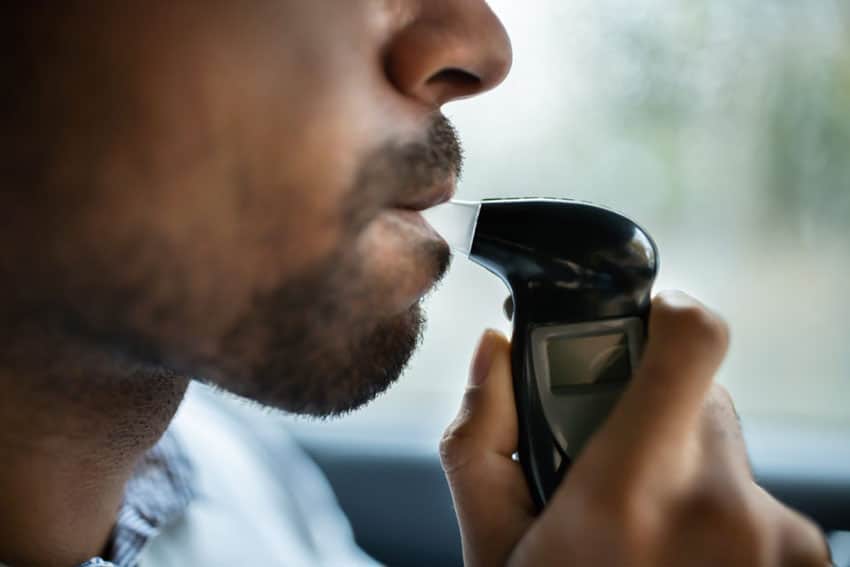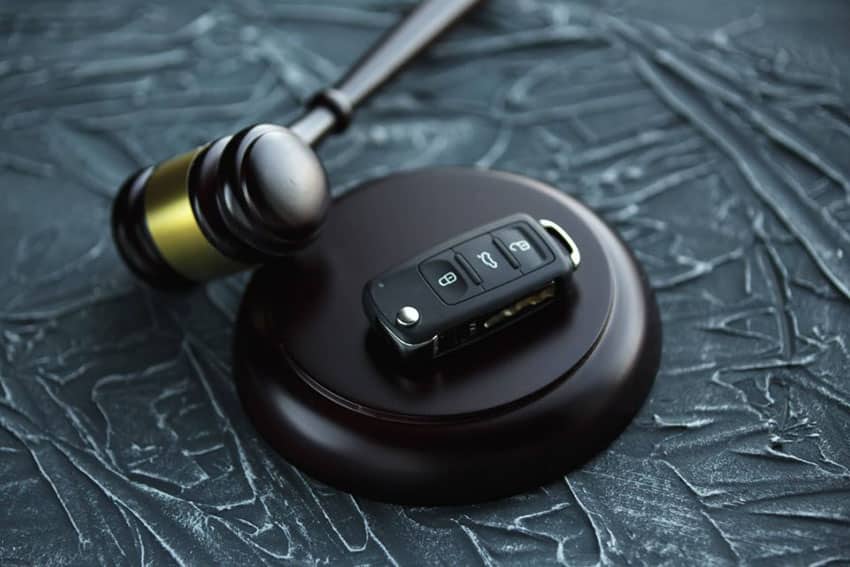When you are arrested for a DWI offense, you will usually be taken for a test to determine your blood alcohol concentration (BAC). The statute establishing the authority of the police to request such a test refers to this as a chemical test.
The most common type of chemical test is a breath test, but New York’s implied consent statute allows for the testing of your breath, blood, urine, or saliva to determine your BAC. New York Vehicle and Traffic Law §1194(2)(a) grants the police authority to administer a chemical test to any person who they have reasonable grounds to believe they committed a DWI offense. In essence, the act of operating a vehicle in New York State acts as your implicit consent to take such a test in those circumstances. If you are arrested for DWI and you refuse to take a chemical test, your driver’s license will be temporarily suspended by the court upon your arraignment, and you will have an administrative hearing at the Department of Motor Vehicles (DMV) within fifteen days. The refusal hearing at the DMV may result in a one-year revocation of your driver’s license and fines. More importantly, your refusal to take a chemical test may be admissible at trial in the DWI prosecution.
Under the implied consent law, a DWI chemical test must be administered according to several statutory test procedures in order for the test results to be admissible in court in your DWI trial. First, the arresting officer must have reasonable grounds to believe that you were operating a motor vehicle while you were intoxicated or while your ability to drive was impaired by drugs. Second, the officer must place you under arrest or administer a field breath test which indicates that you had consumed alcohol. Third, a chemical test given to you must be administered within two hours of your arrest to be admissible in court.
The Tests
Blood testing is the most reliable form of testing to measure your BAC. This is because the concentration of alcohol in the body is almost always expressed in terms of blood. There are two kinds of tests of blood alcohol concentration that you should know about: direct and indirect testing.
A direct test of blood is a quantitative test, usually of the percent weight of alcohol in a measured volume of blood, as determined by actual analysis of that blood. A DWI blood test is usually done by a physician or by a nurse. In addition, under New York law, trained medical personnel such as EMT’s and phlebotomists are allowed to perform DWI blood tests without being supervised by a physician. It is important for you to know that the person who draws your blood for a DWI test may become a witness at your DWI trial. Your DWI defense attorney may attempt to challenge the results of your DWI blood test if the blood sample was tampered with or if there were clear gaps in the chain of custody regarding who handled the sample between the time it was taken and the time it was tested.
Indirect testing of your blood alcohol content is usually done by the administration of a breath test. Breath testing is a favored method of determining BAC since it is simpler than obtaining a blood sample and does not require the presence of a physician or nurse. Also, a breath sample taken by a police technician usually produces results within minutes of the test, as compared to days or weeks of delay which is often the case with having to send a blood sample to a laboratory for analysis.
The way that breath testing works is that the breath testing instrument (often the Breathalyzer) measures your breath, then multiplies it by a constant which correlates your breath alcohol concentration to one for blood. You may wonder whether breath testing instruments such as the Breathalyzer are reliable. In a manual published by the American Medical Association called “Alcohol and the Impaired Driver,” the AMA stated that breath testing methods commonly used are entirely reliable when performed by well-trained, competent operators. Even still, breath test results may be challenged in court by your DWI defense attorney on the grounds that there were irregularities in the breath test procedures, that the breath testing machine was unreliable, that the device was subject to malfunctions, or that the breath testing machine was subject to radio interference which interfered with obtaining a correct reading of your BAC.
If you have been pulled over by the police on suspicion of a drug-related driving offense such as DWAI Drugs, you might be asked to submit to a urine test. Urine tests are popular for obtaining evidence of drug-related impairment because they don’t require any bodily extraction and because they cast a wide net. If you have used illegal drugs recently, a urine test will show a positive result for a long period of time.
A urine test shows the presence of drug metabolites. Metabolites are the inactive leftover traces of a drug. When you use drugs, these substances are carried through your bloodstream to your brain and other organs. When your body begins the process of metabolism, drug metabolites are excreted in your urine. Urine tests for impairment or intoxication have been widely criticized because they are not able to show how recently you have used a certain drug. If you have used marijuana or PCP, even a few weeks ago, the drugs will still show up in a urine test weeks later. This may result in a DWAI Drugs charge and there may be difficulty establishing whether you were really “intoxicated” or “impaired” at the time you drove your car. If you tested positive for drug use after undergoing a DWAI Drugs urine test, you should consult your DWI defense attorney who may be able to challenge the reliability of the urine test on the grounds that the test was unreliable since it might not have accurately determined your level of drug impairment at the time you were driving.
The attorneys at the law firm of DWI Team DWI Defense Attorneys are experienced in handling DWI cases. If you need a lawyer who can help you obtain the best possible outcome, call the law firm of DWI Team Defense Attorneys.
The exclusive purpose of this article is educational and it is not intended as either legal advice or a general solution to any specific legal problem. Corporate offices for DWI Team DWI Defense Attorneys are located at 432 N. Franklin Street, Suite 80, Syracuse, NY 13204; Telephone No.: 1-866-792-7800. Prior results do not guarantee a similar outcome. Attorney Advertising.












